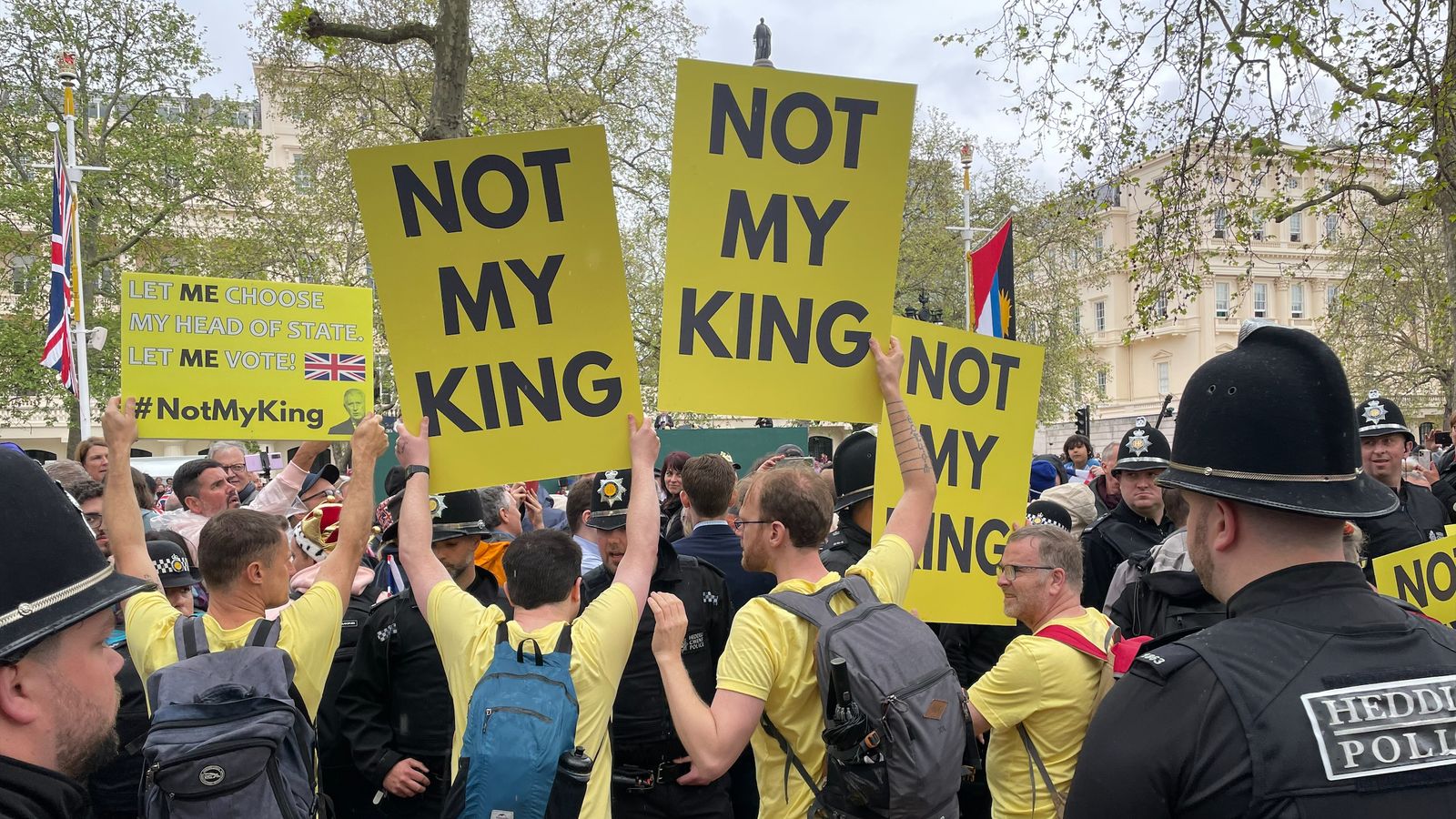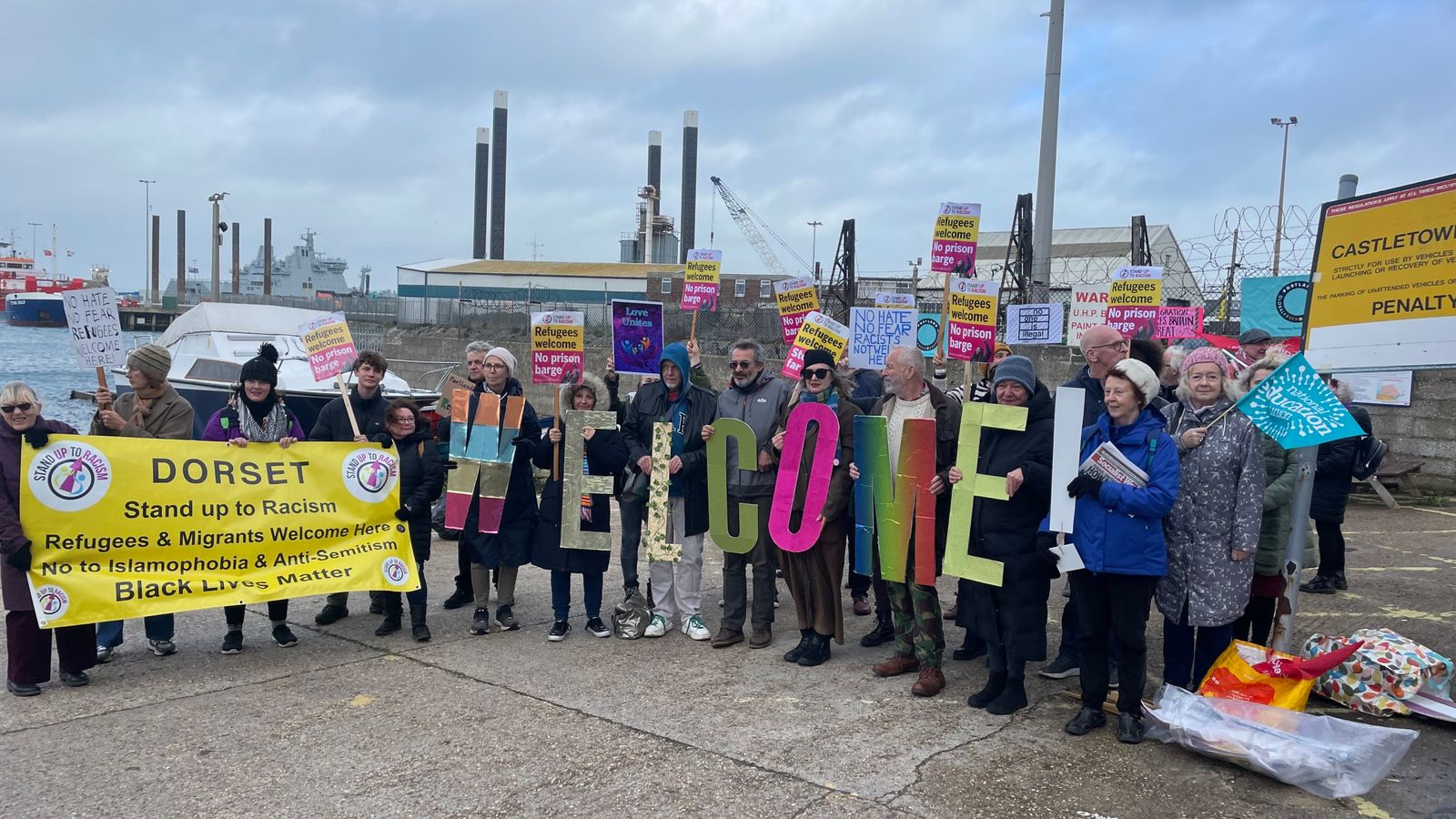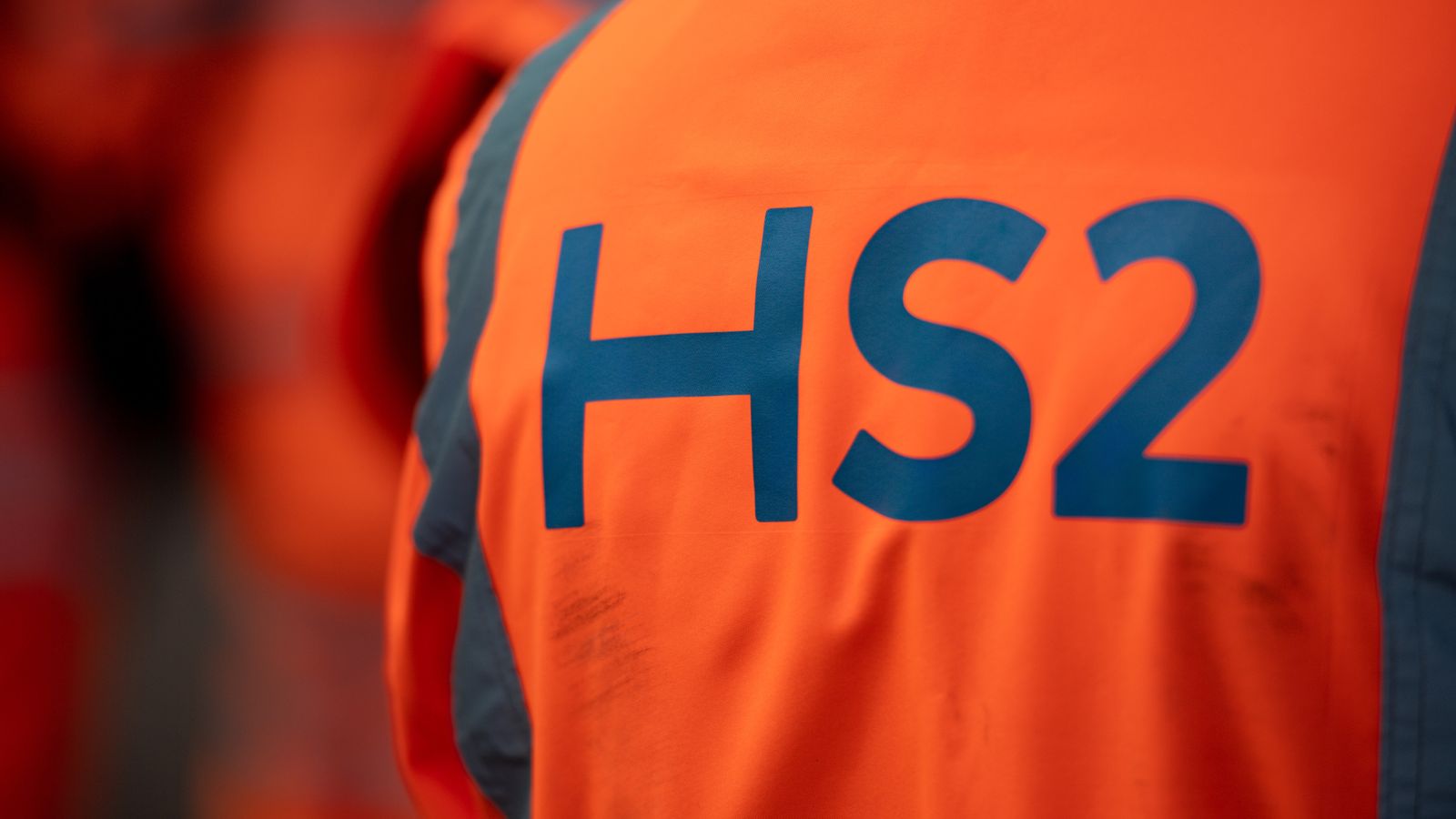The Metropolitan Police has defended officers’ policing of the King’s coronation after it emerged only a fraction of the 64 people who were arrested have been charged.
The force has also said more than half of those arrested will not face charges or receive fines – with 18 told they would face no further action, and a further 18 informed there was insufficient evidence to provide a reasonable prospect of conviction.
Those released without charge included six anti-monarchy protesters and three charity volunteers.
The Met previously said it would apologise to those wrongly arrested during the coronation if it is found officers made mistakes.
In a statement issued on Wednesday, Assistant Commissioner Matt Twist said among those facing no further action were people seen in “possession of glue, allen keys and other paraphernalia”.
The force also said 21 people had been referred to the Crown Prosecution Service – 20 who were arrested on suspicion of conspiracy to cause a public nuisance and one on a racially aggravated public order offence.
Five people have already been charged with offences, one person has been issued a penalty notice for disorder and another suspect was sent to court having been arrested for being wanted on a warrant unrelated to the event, police added.
COVID-19 and flu autumn vaccination drive brought forward as new variant emerges in UK
Criminals to be forced to attend sentencing hearings or face longer in jail under government plans
Edinburgh Academy historical abuse: Private school apologises for ‘brutal and unrestrained’ treatment of pupils
Despite a high number of suspects not facing any further action, Mr Twist defended officers’ decisions – saying their efforts were “consistent with the Met’s long history both of overseeing significant public events and also policing peaceful protest across London”.
He said: “Arrests do not always lead to charges and it is important to remember that the threshold for obtaining a charge is higher than that for making an arrest where an officer need only have suspicion of an offence.
“For example, three of those whose arrest did not lead to charge were found near the coronation route in the early hours of the day of the event in possession of glue, a banner from a known activist group, allen keys and other paraphernalia that could have been used to commit criminal damage or other disruption.”
Read more:
Coronation protesters arrest to be investigated by MPs
How have protest laws changed – and how were they used during the coronation?
Mr Twist continued: “I am confident the public would recognise why officers chose to make arrests in those circumstances, even though it was ultimately determined that a conviction at court would have been unlikely.
“In the hours before the coronation, we had intelligence that indicated activists were plotting to target the procession.
“We had real concerns that such efforts would not only disrupt an event of enormous national significance, but that they could also compromise the security and safety of participants and the public, including posing a risk of serious injury.
“Officers were briefed on these concerns and were directed to act appropriately in light of the emerging intelligence picture, which they did.
“Their efforts were consistent with the Met’s long history both of overseeing significant public events and also policing peaceful protest across London. Every year there are thousands of planned and spontaneous protest events that take place without incident.”
Please use Chrome browser for a more accessible video player
Mr Twist said any suggestion protest was prohibited during the coronation was “not supported by the evidence”.
He said: “We have previously expressed our regret that a number of people who were arrested and released later the same day with no further action taken against them were unable to participate in their planned protest.
“However any suggestion that protest was prohibited at the coronation is not supported by the evidence. There was significant protest activity at points along the procession route, notably in Trafalgar Square.
“I am proud of the efforts of all those involved in policing this historic event. It is thanks to their hard work and dedication that it was able to take place safely and without disruption or disorder.”





